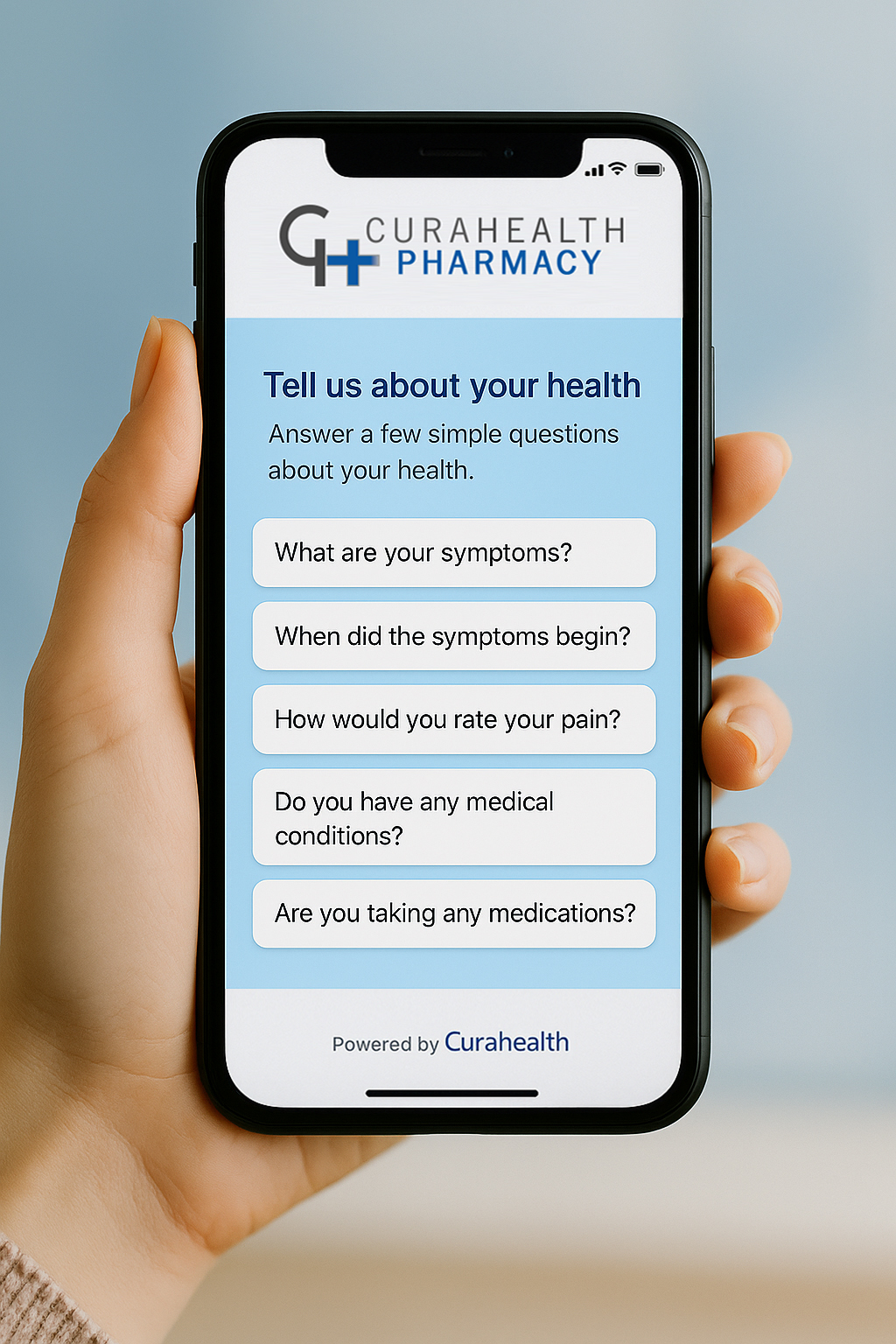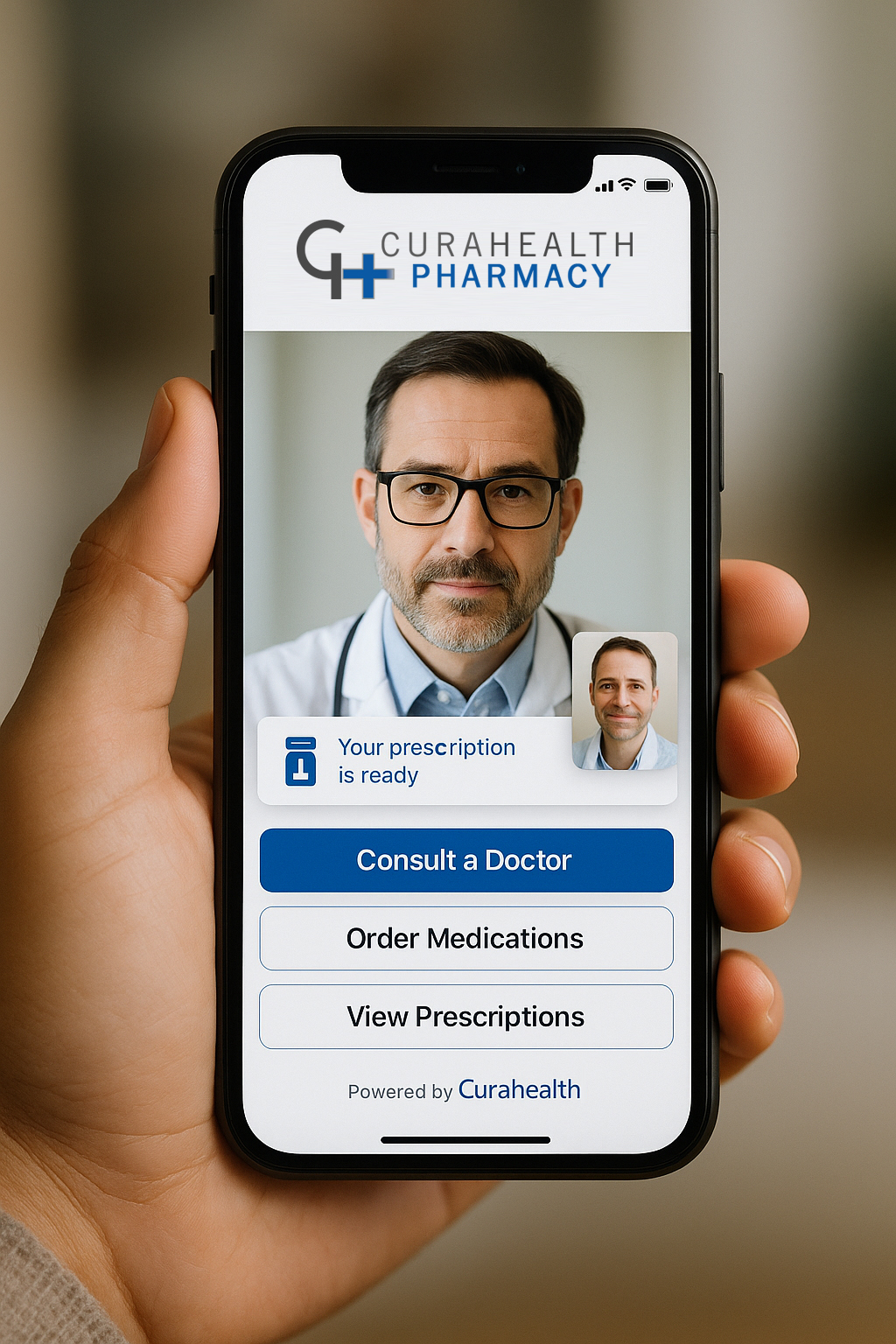Cipro (Ciprofloxacin) is a prescription fluoroquinolone antibiotic used to treat various bacterial infections, including urinary tract, respiratory, and gastrointestinal infections. It’s taken orally or by IV, depending on severity. Follow dosing instructions carefully, avoid dairy near dosing time, and complete the full course to prevent resistance and ensure effectiveness.
Get Cipro online following a confidential review by credentialed U.S. doctors. We ensure fast shipping, privacy, and reliable service every time.



Tell Us About Your Health
No need for an office visit. Just take two minutes to describe your symptoms and medical history online — anytime, from anywhere.
Reviewed by a Doctor
Our licensed provider will assess your info and recommend the right treatment. You can connect with them by message, phone, or video.
Get Your Medication
If a prescription is approved, your medication will be shipped quickly to your door in discreet packaging to protect your privacy.
Antibiotics are amazing drugs that can quickly and effectively treat various types of infections that can wreak havoc on your body. However, no one single antibiotic can treat all types of infections and not all patients can safely take one specific antibiotic.
In this article we are going to discuss the fluoroquinolone antibiotic, Cipro, and provide in-depth information into what the medication treats, how to take, possible side effects, and more.
Cipro, the generic name for Ciprofloxacin, is a type of antibiotic prescribed to treat various bacterial infections. This medication is not intended for and cannot treat viral infections such as the flu, Covid-19, or a cold.
Cipro is classified as a fluoroquinoloneantibiotic, which is a broad-spectrum drug. This class of medication interfereswith the DNA replication of bacteria, destroying it.
Ciprofloxacin works best when taken as an oral tablet. These tablets are also available in extended-release form (Cipro RX), slowly expelling the drug into your system throughout the day.
If you are prescribed Cipro by your doctor, you should always follow the instructions provided on the bottles label.
You should always take Cipro with a full glass of water and continue to drink plenty of fluids while using the mediation. You can take it with or without food but never chew the tablet, always swallowing it whole.
Cipro is typically prescribed twice a day, taking one tablet in the morning and one in the evening, or every twelve hours. Taking your medication at the same time each day will help ensure you never miss a dose.
Patients should also make sure they take all the medication even if they start to feel better because the infection can return.
Cipro is a popular antibiotic, especially in patients older than 18. However, this medication might not be for everyone and can come with a variety of side effects, ranging from tolerable to life-threating.
The most common side effects include,
More severe side effects can also occur. I you experience any of the following symptoms you stop taking the medication and contact your physician right away.
Get immediate medical attention if you are taking Cipro and experience,
It is important to note that while these symptoms are possible, it isn’t likely if you discuss your medical history with your doctor and they, and the pharmacist, know other medications you are currently on.
Cipro can treat a wide variety of infections caused by bacteria. Ciprofloxacin is best suited for adults ages 18 to 60.
While it is advised children shouldn’t take Cipro, it can be prescribed by a doctor if other antibiotics aren’t helping or in certain situations which include, the plague (15 mg per kg of body weight twice a day),anthrax (15 mg per kg of body weight twice a day), serious urinary tract kidney infections (10-20mg per kg of body weight twice a day).
Cipro is commonly prescribed to adults in good health when diagnosed with,
Pregnant woman and woman who are breast feeding should consult with a physician before taking Cipro.
Cipro is also not recommended for anyone diagnosed with diabetes, if taken, blood glucose levels should be monitored at all times. It is also a drug that is not suitable for anyone diagnosed with myasthenia gravis, heart rhythm disturbances, or seizure disorder.
Do You Need a Prescription for Cipro?
Yes, you mustobtain a prescription from a physician to take Cipro. Cipro and other types of antibiotics can be more harmful than good to those who take them and do not necessarily need them. Taking this drug when not warranted can lead to antibiotic resistant bacteria. Doctors have the proper knowledge and training to identify when antibiotics are needed and when they are not.
Can You Drink Alcohol While Taking Cipro?
There are currently no known effects from consuming alcohol while taking Cipro. However, it is not recommended that anyone suffering from a bacterial infection drink alcohol as it can decrease the immune system’s response, delaying improvement.
Should You Double Up if You Miss a Dose of Cipro?
You should never double up on Cipro. If you notice that you missed a dose and you still have a few hours before the next one is scheduled, you can take it then. If your next dose is coming up soon, skip the missed dose and carry on with the schedule routine.
If you skipped an extended-release tab and there is more than six hours before your next dose you can take the medicine as soon as possible then return to your schedule.
Should You Avoid Any Foods While Taking Cipro?
Cipro can have a negative reaction when mixing with certain foods, medications, and natural supplements. Avoid taking this antibiotic with any type of dairy products or calcium fortified juices. You should also wait at least two hours after consuming products containing calcium, zinc, or iron before taking Cipro as these will affect absorption.
Can You Drive When Taking Cipro?
Most patients have no difficulty driving while taking their medications as prescribed. However, if you notice that Ciprofloxacin makes you feel overly tired, dizzy, or lightheaded, you should avoid driving or operating heavy machinery.
How Long Does It Take for Cipro to Work?
Cipro starts to work within hours of your first dose. However, it can take up to 48 hours for symptoms related to the infection to start to subside.